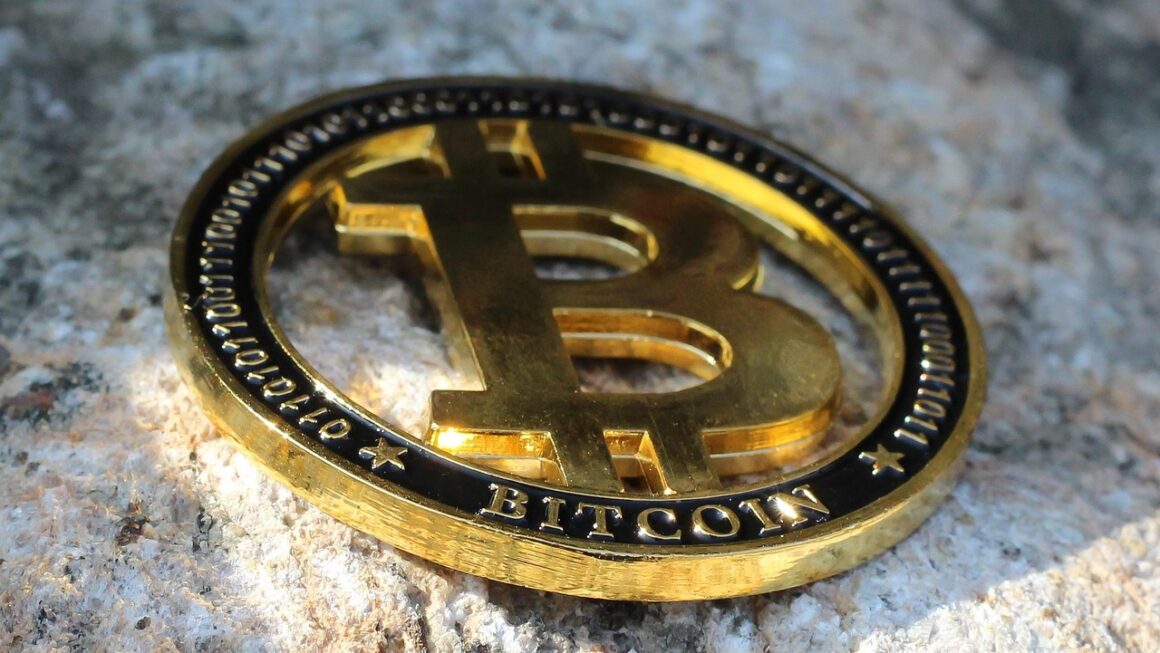Smart contracts are revolutionizing the way we conduct business and interact online. They offer a transparent, secure, and automated way to enforce agreements, cutting out intermediaries and streamlining processes. From decentralized finance (DeFi) to supply chain management, smart contracts are paving the way for a more efficient and trustworthy future. This article provides a comprehensive overview of smart contracts, exploring their functionality, benefits, and potential applications.
Understanding Smart Contracts
What are Smart Contracts?
A smart contract is a self-executing contract written in code. It automatically enforces the terms of an agreement when predetermined conditions are met. These contracts are stored on a blockchain, a decentralized and immutable ledger, ensuring transparency and security.
Think of it like a vending machine: You insert money (meet the condition), and the machine dispenses the desired item (executes the contract). No human intervention is required.
How do Smart Contracts Work?
The lifecycle of a smart contract typically involves these steps:
- Development: The contract is written in a programming language such as Solidity (for Ethereum) or Rust (for Solana).
- Deployment: The contract is deployed to the blockchain, assigned a unique address, and becomes publicly available.
- Execution: When predefined conditions are met, the contract automatically executes the relevant code.
- Verification: The execution and resulting transactions are recorded on the blockchain, providing a transparent and auditable record.
The decentralized nature of the blockchain ensures that no single entity can tamper with the contract’s code or execution.
Key Features of Smart Contracts
Smart contracts possess several key features that make them valuable:
- Autonomy: Self-executing and require no intermediaries.
- Transparency: Code and transactions are publicly visible on the blockchain.
- Security: Tamper-proof due to the decentralized nature of the blockchain.
- Efficiency: Automate processes, reducing time and costs.
- Trustless: Execute based on code, eliminating the need for trust between parties.
Benefits of Using Smart Contracts
Increased Efficiency and Reduced Costs
Smart contracts automate tasks that traditionally require manual intervention, such as processing payments or verifying identities. This leads to:
- Faster transaction times: Eliminate delays associated with intermediaries.
- Lower transaction fees: Reduce or eliminate intermediary fees.
- Reduced administrative overhead: Automate tasks, freeing up resources.
For example, in supply chain management, smart contracts can automatically release payments to suppliers upon verification of shipment arrival, eliminating the need for manual invoice processing and dispute resolution.
Enhanced Security and Transparency
The decentralized and immutable nature of blockchains makes smart contracts highly secure. They are resistant to tampering and fraud because:
- Data immutability: Once deployed, the code cannot be altered.
- Decentralized control: No single point of failure or control.
- Auditable history: All transactions are permanently recorded on the blockchain.
This is particularly beneficial in voting systems, where smart contracts can ensure transparent and verifiable election results.
Improved Trust and Accountability
Smart contracts foster trust by ensuring that agreements are enforced as intended. This is achieved through:
- Code-based execution: Agreements are enforced by code, eliminating subjective interpretation.
- Immutable records: All actions are recorded and verifiable, promoting accountability.
- Reduced counterparty risk: Agreements are enforced automatically, reducing the risk of non-compliance.
In real estate, smart contracts can automate the transfer of property titles upon payment completion, ensuring a secure and transparent transaction for both buyer and seller.
Applications of Smart Contracts
Decentralized Finance (DeFi)
DeFi is one of the most prominent use cases for smart contracts. They enable:
- Decentralized exchanges (DEXs): Allow users to trade cryptocurrencies without intermediaries.
- Lending and borrowing platforms: Enable users to lend and borrow cryptocurrencies without traditional financial institutions.
- Yield farming: Reward users for providing liquidity to DeFi platforms.
Platforms like Uniswap and Aave leverage smart contracts to provide decentralized financial services.
Supply Chain Management
Smart contracts can streamline and improve transparency in supply chains by:
- Tracking goods and materials: Provide a real-time view of the location and status of products.
- Automating payments: Release payments automatically upon verification of delivery.
- Ensuring product authenticity: Verify the origin and authenticity of products to combat counterfeiting.
For example, a smart contract can track a shipment of coffee beans from the farm to the roaster, ensuring fair trade practices and verifying the beans’ origin.
Healthcare
Smart contracts can improve data security and efficiency in the healthcare industry by:
- Securing medical records: Protect patient data and ensure privacy.
- Automating insurance claims: Streamline the claims process and reduce administrative costs.
- Managing clinical trials: Ensure transparency and accuracy in clinical trial data.
Patients can use smart contracts to grant secure access to their medical records to specific healthcare providers.
Digital Identity
Smart contracts can enable individuals to control their digital identities by:
- Verifying credentials: Allow users to prove their identity without sharing sensitive information.
- Managing personal data: Enable users to control who has access to their data.
- Reducing identity theft: Securely store and manage personal information.
Solutions like Self-Sovereign Identity (SSI) use smart contracts to give individuals control over their digital identities.
Challenges and Limitations of Smart Contracts
Scalability Issues
Many blockchain platforms face scalability challenges, which can limit the speed and efficiency of smart contract execution. As the number of transactions increases, the network can become congested, leading to:
- Slower transaction times: Transactions may take longer to be processed.
- Higher transaction fees: Increased demand can drive up transaction fees.
Layer-2 scaling solutions, such as rollups and sidechains, are being developed to address these limitations.
Security Vulnerabilities
Smart contracts are susceptible to security vulnerabilities if they are not properly coded and tested. Common vulnerabilities include:
- Reentrancy attacks: Allow attackers to repeatedly withdraw funds from a contract.
- Integer overflows: Can lead to unexpected behavior and loss of funds.
- Denial-of-service attacks: Overload the contract and prevent legitimate users from accessing it.
Auditing smart contract code by security experts is essential to identify and mitigate these vulnerabilities.
Regulatory Uncertainty
The legal and regulatory landscape surrounding smart contracts is still evolving. This uncertainty can create challenges for businesses that want to adopt smart contract technology. Key issues include:
- Legal enforceability: The extent to which smart contracts are legally binding.
- Data privacy regulations: Compliance with regulations like GDPR.
- Tax implications: The tax treatment of transactions executed by smart contracts.
Clearer legal frameworks are needed to promote the adoption of smart contracts and provide businesses with regulatory certainty.
Conclusion
Smart contracts are a transformative technology with the potential to revolutionize various industries. By providing a secure, transparent, and automated way to enforce agreements, they offer numerous benefits, including increased efficiency, reduced costs, and improved trust. While challenges such as scalability, security vulnerabilities, and regulatory uncertainty remain, ongoing developments and advancements are paving the way for wider adoption. As the technology matures and the regulatory landscape becomes clearer, smart contracts are poised to play an increasingly important role in the future of business and society.
Read our previous article: Edge AI: Unlocking Real-Time Insights At The Source




